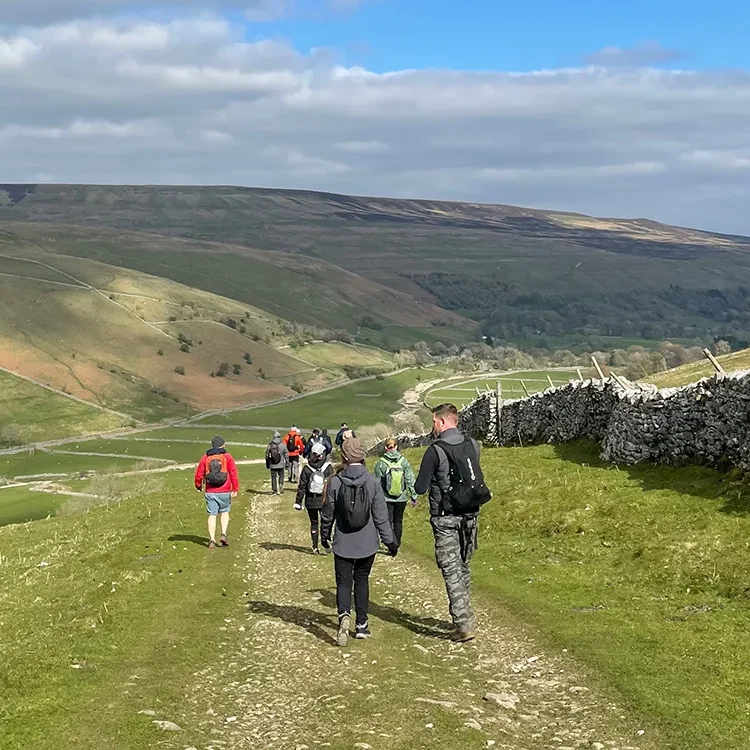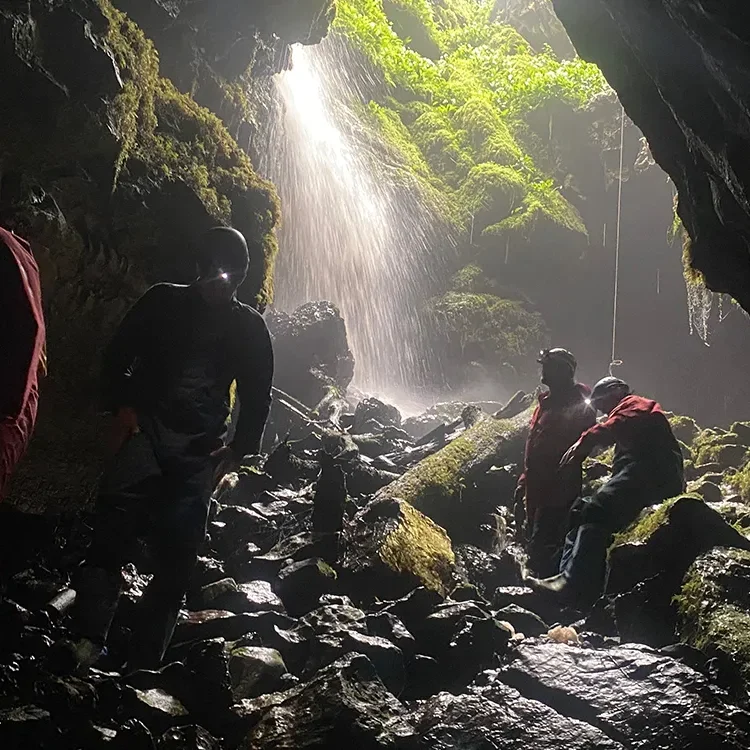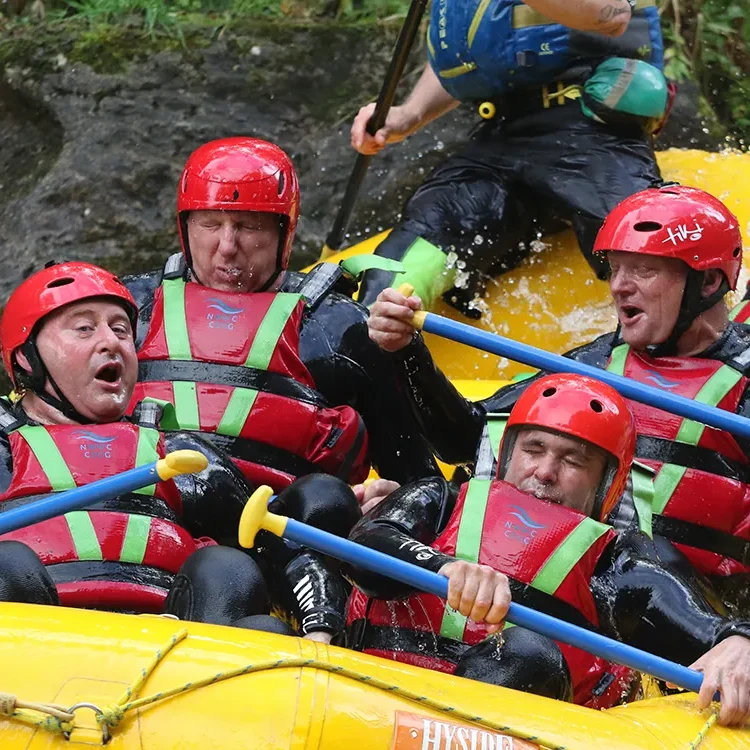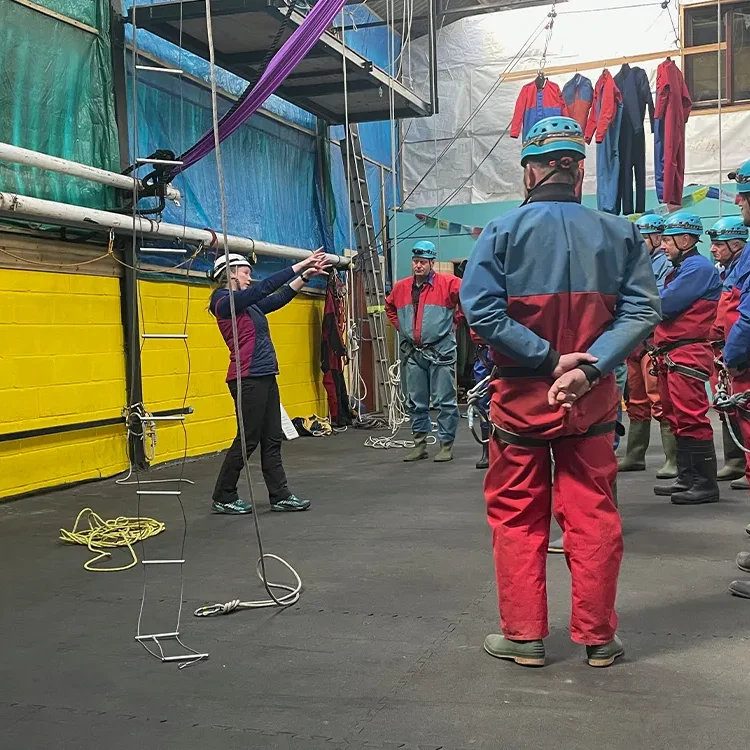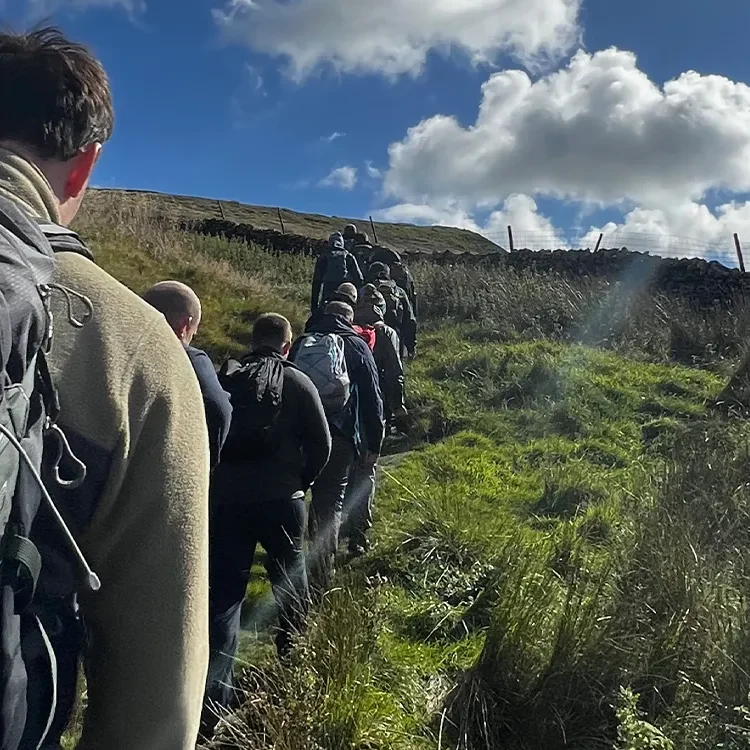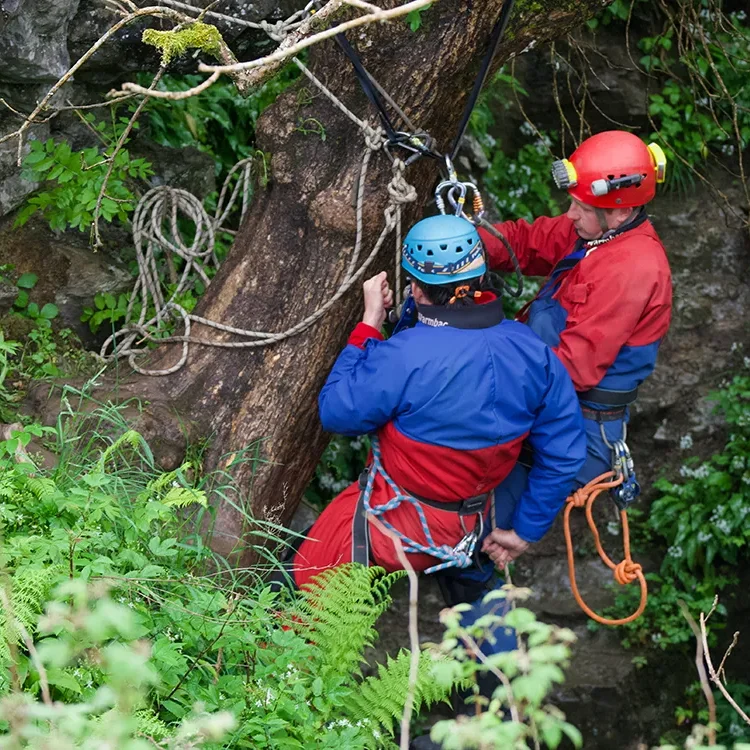The Benefits of Outdoor Management Development
Acorn’s Outdoor Management Development (OMD) programmes offer a unique and powerful way to enhance leadership, teamwork, and problem-solving skills. Unlike traditional indoor and classroom-based training, OMD helps participants break free from the constraints of the office environment, encouraging deep connection, fresh perspectives and creativity.
A key benefit of OMD is the development of connections at both an intrapersonal and interpersonal level. This means that an individual develops a deeper understanding of themselves as well as strengthening relationships with peers and/or team members.
Outdoor challenges often require groups to collaborate closely to achieve common goals, fostering communication, trust, honesty and mutual support. This shared experience can lead to improved dynamics within teams, as participants learn to appreciate each other’s strengths and work more cohesively.
Leadership skills are also significantly enhanced through OMD. Participants are often placed in unfamiliar situations that require quick thinking, adaptability, and decision-making. These experiences help individuals build confidence and improve their ability to lead under pressure.
Additionally, OMD can promote personal growth by pushing participants out of their comfort zones. This can lead to increased self-awareness and resilience, as individuals learn to navigate challenges and overcome obstacles.
That said, Acorn promotes ‘challenge by choice’ and participants will never be pressured to take part in any activity which is beyond their perceived or actual capabilities, nor will they be judged for non-participation.
Ours is a blended approach combining physical activity with mental and emotional growth, leading to more effective, high performing teams and well-rounded leaders.
Transference of Learning
One of the most significant benefits of Outdoor Management Development is the transference of learning from outdoor experiences back to the workplace. The hands-on, experiential nature of OMD allows participants to internalise learning more deeply than traditional classroom-based training.
This type of learning is often more memorable and impactful, making it easier for participants to apply the skills and insights gained in real-world work situations.
In Acorn’s outdoor experiential sessions, participants face challenges that require them to use critical thinking, collaboration, and leadership in potentially unpredictable environments.
These scenarios are designed to mirror the complexities and pressures found in the workplace but in a more dynamic and engaging way. When individuals successfully navigate these challenges outdoors, they gain confidence in their abilities, which can be directly transferred to their professional roles.
The process of personal reflection is another crucial aspect that facilitates the transference of learning. After completing an outdoor experiential, participants typically engage in debriefing and feedback sessions where they analyse what worked, what didn’t, and why. These reflections help solidify the connection between the lessons learned outdoors and how they are applied to day-to-day workplace situations.
Ultimately, the skills developed during OMD – such as communication, adaptability, and problem solving – are not just theoretical concepts but practical tools that participants can effectively use to enhance their performance and contributions within their organisations.
What Makes an Effective Outdoor Management Development Programme?
We believe that delivering an impactful Outdoor Management Development programme requires expert facilitation, careful planning and cohesive blend of dynamics to ensure that the experience is both meaningful and enjoyable.
Here are ten ways Acorn create and deliver successful outdoor experientials as part of their team coaching programmes:
Set Clear Objectives
We clearly define and agree the goals and outcomes our clients want to achieve. Whether it’s improving collaboration, leadership, or problem-solving skills, having specific objectives will guide the design of activities and execution of the outdoor experiential.
Tailor Activities to Achieve Specific Objectives
The design of any Acorn outdoor programme is determined by understanding of the wider organisational or team objectives, and what the experiential element needs to achieve. We match the skill levels, physical abilities, and developmental needs of the participants to ensure the activities are challenging yet achievable, fostering a positive learning environment.
Incorporate a Blend of Challenges and Experiences
Using a mix of activities that target different skills – leadership exercises, team-building tasks, and problem-solving challenges – keeps participants engaged and allows for comprehensive skill development.
Emphasise Reflection and Debriefing
By incorporating regular reflection periods after each activity, where participants can discuss what they learned, how they performed, and how these lessons can be applied in their work and reinforces the transference of learning. Reflection also promotes honesty, a key attribute amongst high performing teams.
Provide Experienced Facilitators
Acorn’s outdoor experientials are facilitated by experienced instructors, all proven professionals who can guide participants through activities, adapt to group dynamics, provide insights, and draw out lessons that align with the programme’s objectives.
Create a Safe Environment
Wherever we run an outdoor experiential – the Lake District or Yorkshire Dales, Peak District or Snowdonia – physical safety is paramount, but psychological safety is also important, and all activities are conducted with safety in mind. Participants should always feel comfortable taking appropriate risks and expressing themselves.
Encourage Team Collaboration
Our blended approach includes activities that require collaboration and interdependence among participants which builds trust, improves communication, and strengthens team cohesion.
Promote Leadership Opportunities
By rotating leaders throughout the activities, we give everyone the chance to learn from the leadership experience. This helps individuals develop confidence and leadership skills, as well as a greater appreciation of others in leadership roles.
Incorporate Real-World Scenarios
Introducing scenarios and challenges that mimic real-world business situations makes the experience more relevant and allows participants to practice skills that they can directly apply in their work.
Post-Programme
The outdoor experiential element is just one part of Acorn’s team coaching programmes, and subsequent sessions require participants to reflect upon and apply what they’ve learned back into the workplace. This reinforces the programme’s impact and demonstrates tangible return on investment.
By implementing these and other additional strategies, Acorn maximise the effectiveness of outdoor experientials, ensuring that participants gain valuable skills and insights that translate into improved team performance and leadership within their organisation.


